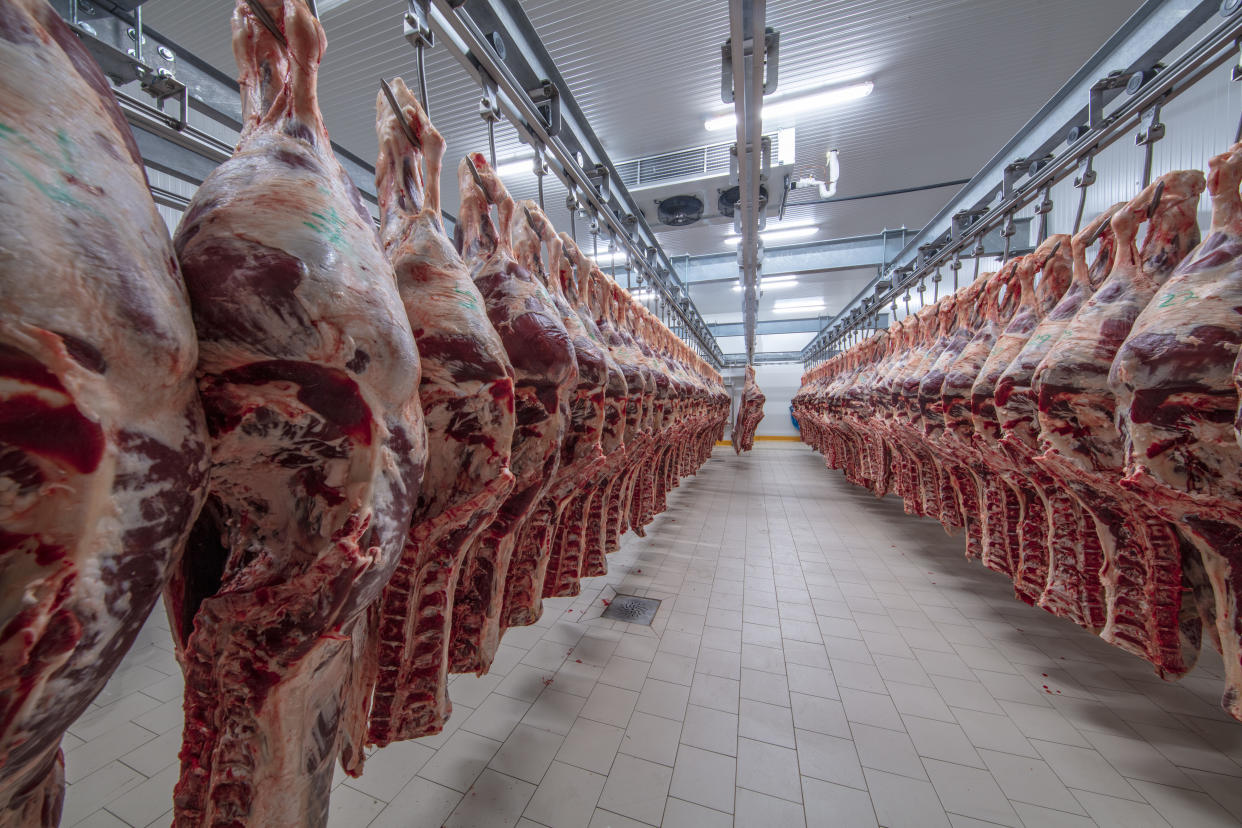20 large meat and dairy companies emit more greenhouse gases than Britain or Germany

Twenty large livestock companies emit more greenhouse gases than Germany, Britain or France, a shocking new report has found.
According to UN statistics, 14.5% of greenhouse gas emissions come from animal agriculture.
These large meat-processing firms still secure large investments from investment companies, pension funds and banks, the Meat Atlas Report found.
Between 2015 and 2020, meat and dairy companies received $478bn from 2,500 investors, the report found, according to the Guardian.
The Meat Atlas was compiled by Friends of the Earth and Heinrich Böll Stiftung, a political foundation in Europe.
Read more: Why economists worry that reversing climate change is hopeless
The five biggest meat and milk producers emit the same volume of greenhouse gas as oil giant Exxon, the report warned.
Watch: Climate change- Deadly floods 20% more likely
Meat production has grown rapidly for decades; in the 1970s, it was just one-third of current levels.
The report suggests that meat production will continue increasing, rising by 40m tonnes by 2029 to a level of 366m tonnes of meat a year.
The researchers wrote: “The fact that the meat industry keeps profiting through all crises while being subject to little regulation poses the question as to whom governments really listen to.
“While livestock corporations fuel the climate crisis, deforestation, pesticide use and biodiversity loss, and while they drive people off their land, they are still supported and financed by the world’s most powerful banks and investors, many of them from Europe.
“Policies on the other hand – be they on animal welfare, trade or climate – include very few restrictions on this damaging industry.”
Read more: A 1988 warning about climate change was mostly right
A report this week suggested that the UK should embrace ‘synthetic meat’ in order to hit its climate targets.
The Social Market Foundation report urges policymakers to invest in the ‘alternative protein’ sector (where meat is produced using technologies such as ‘growing’ muscle fibre from tissue samples).
Other alternative proteins in the report include those derived from plants or from fermentation processes.
The report points out that consumers in the UK only eat 6% less meat per capita than in 1974, despite the growing popularity of vegetable products and diets such as veganism.
Read more: Melting snow in Himalayas drives growth of green sea slime visible from space
“If the UK is to reach its net zero commitments, meat consumption will need to fall more rapidly over the coming decades," the researchers wrote.
“However, there has been a conspicuous lack of policy designed to achieve this.
“Whereas media attention has focused on the radical and politically sensitive option of a ‘meat tax’, the rapid expansion of the alternative protein market offers a way to reduce meat consumption through consumer choice.”
Watch: Spanish restaurants serve up 3D-printed steaks


